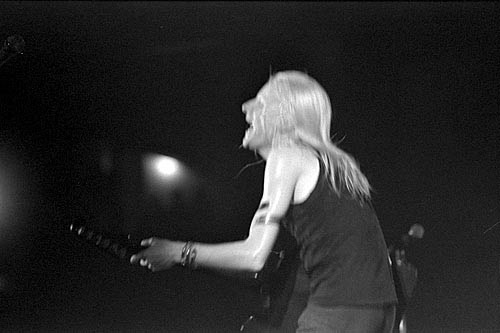If it's ever written, the definitive treatise tracing the roots of rock might well open with this simple assertion:
“In the beginning was Bo Diddley.”
Diddley, whose true blues roots reach back to the Mississippi Delta, ranks indisputably with Muddy Waters, Little Walter, Howlin’ Wolf and B. B. King as a primary influence on the host of young white artists who have processed raw blues into a highly marketable musical commodity.
And while the Diddley imitators and plagiarists collect gold records and monopolize the television guest lists on the strength of meteoric flashes to stardom, the master himself grows old and admittedly bitter as he continues — to use the argot of the music business — “paying his dues.”
Bo Diddley came to Charleston Thursday night to gig for Phil and Mike Corey at the Checkmate. He arrived a little late, his road-worn Cadillac limping in off the turnpike with a blown transmission. But the Checkmate crowd had come to honor a legend. They waited.
CHOPPING tirelessly downward across the strings of his custom Gretsch , Diddley immediately nailed down the world-famous rhythm figure — his trademark — which has helped make a fortune for two Polish immigrants named Phil and Leonard Chess, owners of Chess Records, Diddley’s record label.
Charleston's most knowledgeable rock fans, like Powerhouse guitarist Randall Wray, crowded around the stage. Beyond this tight circle of aficionados a black-lighted tableau of young people — awed in the presence of acknowledged genius — remained poised until the first harsh chord of the Bo Diddley Beat broke the spell and triggered compulsive physical response.
The Checkmate throbbed to the same beat which, after Diddley’s first records on Chess were released 16 years ago, Dot Records picked up on and transmuted and promoted into a million-dollar sound using white artists.
As Bo cooled off after his first set, we asked him to comment on the anomaly of a white blues-imitator like Johnny Winter landing a fat $300,000 contract with Columbia Records while Bo, Muddy, B. B., et al., plug along doing $300 one-nighters.
“THIS UPSETS me,” Diddley admitted. “My things have been copied, my songs swiped and my things popularized until the country is so glutted with my style that I can’t make a living myself. But I can’t change. I’ve got to do what I've always done. It’s me.”
“Part of my problem is my record company. I have recorded a lot of things they just won’t release, while all kinds of junk is being released and selling by the millions. During my career I’ve been forced constantly to borrow money from my record company to keep going.”
Some pop experts believe that Bo and the other basic blues artists are about to get their big break, gain popular recognition and emerge as major record sellers.
“I see signs of this,” Diddley said. “There are indications that the young white kids, like those here tonight, are getting sophisticated enough to want the real thing. I hope this happens. I’ve paid my dues.”
P.S. Bo Diddley has a new record called “Mother Goose Is A Mother.”
Ray Brack
Source & Full Article: 69-07-19 Charleston WV Gazette.pdf
